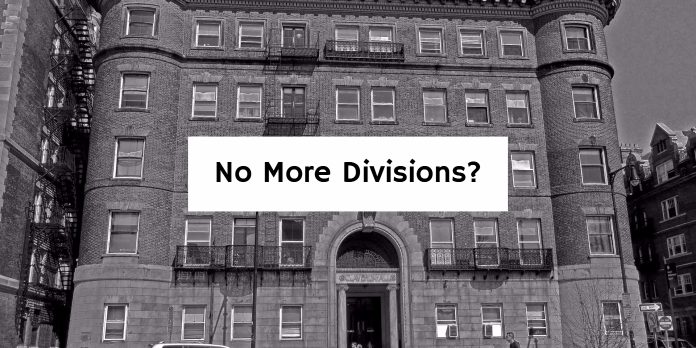Let me say right off that I admire Krister Stendahl. He taught for many years at Harvard, and also served as the Lutheran bishop of Stockholm. He is a fine theologian-churchman and I have learned much from his writings. But when I spoke to the Southern California Ecumenical Council the other day, I began by quoting something Stendahl said that I find to be a departure from his usual clearheadedness.
In its Fall/Winter 2003 issue, the Harvard Divinity Bulletin published the text of an address that Stendahl gave to the 50th reunion of Harvard Divinity School’s class of 1953. In offering his personal reflections on patterns of life at the Divinity School since his arrival as a new faculty member in 1954, Stendahl told his listeners about “the big move over these 50 years from the ecumenist to the interfaith movement.” Stendahl was clearly pleased with this shift of focus. “[T]here isn’t so much interest in ecumenism anymore,” he told his audience, mainly because “most reasonable theologians don’t see any problems anymore.” Having decided that there really isn’t much to argue about among themselves, these “reasonable” Christian thinkers have turned their attention to the more interesting theological issues dealing with differences among the world religions.
I wonder what he was thinking when he said this. Who are these “reasonable theologians” who have solved all of the theological problems that have divided Christians? I am reminded of an acerbic comment that Peter Berger made several decades ago, when Harvey Cox’s book The Secular City was a hot item. Whenever Cox refers to what “modern man” believes, Berger said, we should immediately translate that as “what the people on my block in Cambridge are saying these days.”
The other evening I talked with some evangelical Anglicans who are very disturbed about the theological divisions in their communion. As a member of the PC(USA) I regularly hear the same concerns being expressed.
My two “must read every day” websites are http://www.christianitytoday.com/ct/ and Presbyweb. You can get a free one-month trial to the latter at https://www.presbyweb.com/Subscriptions/PresbyWeb/login.jsp?redirect=default.jsp– and it is a wonderful source of news, not only about Presbyterian matters but about religion in general. Most of the religious news these days is about conflict within denominations, both mainline and evangelical–as well as Roman Catholic.
Actually, I do understand the instinct at play in Bishop Stendahl’s misguided comment. I engage in quite a bit of interreligious dialogue, and I can go about that with relative calm. In a signficant sense, interreligious dialogue is less stressful than intra-Christian dialogue. When we can take it for granted that we are divided by serious issues of eternal significance, there is not the temptation to get upset when someone says something that you strongly disagree with. But when the claims being made are offensive, and also made in the name of Christ, there is often too much at stake to remain calm. I work hard at cultivating “convicted civility,” and preach a lot to others on the subject. The effort is an important one. But it is made even more difficult when prominent Christian thinkers treat us as less than “reasonable” for thinking that the Christian community is deeply divided over extremely important theological issues.
3 Comments »
-
[…] Speaking of Fuller, I read this from Richard Mouw’s blog (he’s the President of Fuller) on interfaith dialogue vs. ecumenical dialogue: “In a signficant sense, interreligious dialogue is less stressful than intra-Christian dialogue. When we can take it for granted that we are divided by serious issues of eternal significance, there is not the temptation to get upset when someone says something that you strongly disagree with. But when the claims being made are offensive, and also made in the name of Christ, there is often too much at stake to remain calm.” […]
Pingback by Spanglish Gringo » Blog Archive » a new quarter — March 26, 2007 @ 8:28 am
-
Hooray! for Dr. Mouw,
You are such an inspiration. Come and share some of your wisdom with us at punkfuller.com please.
god bless me,
truf b.told
-
Many of us who have never been involved in a spiritual fulfilled relationship with the Lord have had emotional engagement with Christ in our faith walks. However, “counterfeit” emotional oneness feeling with our God develops only when one submits all of his/her spirit, soul and emotions to the Lord beyond what is required for as an “ordinary” master-servant relations. As committed Christians, regardless of divisions or denominations, most of us have deep desires to be more spiritual on a reasonable meaner also opens us up for more vulnerability that probably happens more than we would like to admit. Some (hopefully only a few) people use religion authorities and spiritual talks as a form of manipulation. By realizing this in our human nature, we ought to seek not only Godly behaviors but also Godly motives when we try to express our view points in constructive dialogues, regardless it is within interrelations or intra-Christian.
Peace in Christ,
Lan
Comment by LLL — March 31, 2007 @ 10:48 pm






























